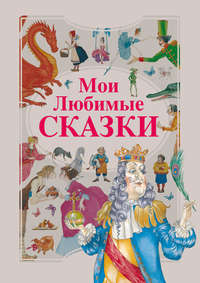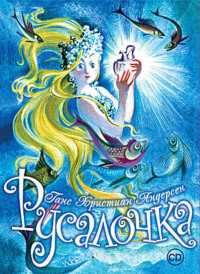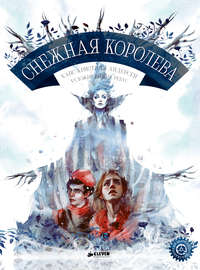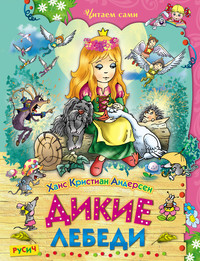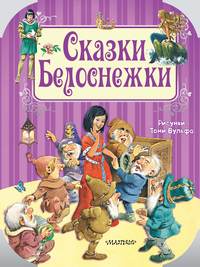 полная версия
полная версияO. T., A Danish Romance
“Let him sleep the eternal rest!” said the preacher.
Otto stared at the black coffin in which his grandfather lay. The carriage drove away with it. Otto followed after with the preacher, heard him throw earth upon it, heard words which he did not comprehend, saw the last corner of the coffin, and it was then removed from his sight. All was as a dream to him.
They returned back to the preacher’s abode; a pale figure approached him: it was Rosalie—old Rosalie.
“We have here no abiding-place, we all hasten toward futurity!” said the old preacher. “Strengthen yourself now with meat and drink! The body cannot suffer like the soul. We have accompanied him to His sleeping chamber; his bed was well prepared! I have prayed the evening prayer; he sleeps in God, and will awaken to behold His glory. Amen!”
“Otto! thou dear Otto!” said Rosalie. “The bitterest day brings me this joy! How have I thought of thee! Amongst strangers shouldst thou receive the tidings of his death! with no one who could feel for thy sorrow! where thou shouldst see no eye weep for what thou hast lost! Now thou art here! now, when I believed thee so far distant—it is a miracle! Thou couldst only have received the letter to-day which carried the intelligence of thy grandfather’s death to thee!”
“I wished to surprise you,” said Otto. “A melancholy surprise awaited me!”
“Sit down, my child!” said the preacher, and drew him toward the covered table. “When the tree falls which gave us shade and fruit, from which we, in our own little garden, have planted shoots and sown seeds, we may well look on with sadness and feel our loss: but we must not forget our own garden, must not forget to cherish that which we have won from the fallen tree: we must not cease to live for the living! I miss, like you, the proud tree, which rejoiced my soul and my heart, but I know that it is planted in a better garden, where Christ is the gardener.”
The preacher’s invitation to remain with him, during his stay, in his house, Otto declined. Already this first night he wished to establish himself in his own little chamber in the house of mourning. Rosalie also would return.
“We have a deal to say to each other,” said the old preacher, and laid his hand upon Otto’s shoulder. “Next summer you will hardly press my hand, it will be pressed by the turf.”
“To-morrow I will come to you,” said Otto, and drove back with the old Rosalie to the house.
The domestics kissed the hand and coat of the young master—he wished to prevent this; the old woman wept. Otto stepped into the room; here had stood the corpse, on account of which the furniture had been removed, and the void was all the more affecting. The long white mourning curtains fluttered in tire wind before the open window. Rosalie led him by the hand into the little sleeping-room where the grandfather had died. Here everything yet stood as formerly—the large book case, with the glass doors, behind which the intellectual treasure was preserved: Wieland and Fielding, Millot’s “History of the World,” and Von der Hagen’s “Narrenbuch,” occupied the principal place: these books had been those most read by the old gentleman. Here was also Otto’s earliest intellectual food, Albertus Julius, the English “Spectator,” and Evald’s writings. Upon the wall hung pikes and pistols, and a large old sabre, which the grandfather had once worn. Upon the table beneath the mirror stood an hour-glass; the sand had run out. Rosalie pointed toward the bed. “There he died,” said she, “between six and seven o’clock in the evening. He was only ill three days; the two last he passed in delirium: he raised himself in bed, and shook the bed posts; I was obliged to let two strong men watch beside him. ‘To horse! to horse!’ said he; ‘the cannons forward!’ His brain dreamed of war and battles. He also spoke of your blessed father severely and bitterly! Every word was like the stab of a knife; he was as severe toward him as ever!”
“And did the people understand his words?” asked Otto with a wrinkled brow.
“No, for the uninitiated they were dark words; and even had they possessed any meaning, the men would have believed it was the sickness which spoke out of him. ‘There stands the mother with the two children! The one shall fall upon the flank of the enemy and bring me honor and joy. The mother and daughter I know not!’ That was all which I heard him say about you and your mother and sister. By noon on the third day the fever had spent itself; the strong, gloomy man was become as weak and gentle as a child; I sat beside his bed. ‘If I had only Otto here!’ said he. ‘I have been severely attacked, Rosalie, but I am now much better: I will go to sleep; that strengthens one.’ Smilingly he closed his eyes and lay quite still: I read my prayers, withdrew gently so as not to wake him; he lay there unchanged when I returned. I sat a little while beside his bed; his hands lay upon the coverlid; I touched them, they were ice-cold. I was frightened, touched his brow, his face—he was dead! he had died without a death-struggle!”
For a long time did they converse about the dead man; it was near midnight when Otto ascended the narrow stairs which led to the little chamber in the roof, where as child and boy he had slept. All stood here as it had done the year before, only in nicer order. Upon the wall hung the black painted target, near to the centre of which he had once shot. His skates lay upon the chest of drawers, near to the nodding plaster figure. The long journey, and the overpowering surprise which awaited him on his return, had strongly affected him: he opened the window; a large white sand-hill rose like a wall straight up before it, and deprived him of all view. How often, when a child, had the furrows made by rain in the sand, and the detached pieces, presented to him pictures,—towns, towers, and whole marching armies. Now it was only a white wall, which reminded him of a winding-sheet. A small streak of the blue sky was visible between the house and the steep slope of the hill. Never before had Otto felt, never before reflected, what it was to stand alone in the world, to be lovingly bound to no one with the band of consanguinity.
“Solitary, as in this silent night do I stand in the world! solitary in the mighty crowd of human beings! Only ONE being can I call mine! only ONE being press as kindred to my heart! And I shudder at the thought of meeting with this being—I should bless the thought that she was dead! Father! thou didst ruin one being and make three miserable. I have never loved thee; bitterness germinated within my breast when I became acquainted with thee! Mother! thy features have died out of my recollection; I revere thee! Thou wast all love; to love didst thou offer up thy life—more than life! Pray for me with thy God! Pray for me, ye dead! if there is immortality; if the flesh is not alone born again in grass and the worm; if the soul is not lost in floods of air! We shall be unconscious of it: eternally shall we sleep! eternally!” Otto supported his forehead upon the window-frame, his arm sank languidly, “Mother! poor mother! thou didst gain by death, even if it be merely an eternal sleep,—asleep without dreams! We have only a short time to live, and yet we divide our days of life with sleep! My body yearns after this short death! I will sleep—sleep like all my beloved ones! They do not awaken!” He threw himself upon the bed. The cold air from the sea blew through the open window. The wearied body conquered; he sank into the death-like sleep, whilst his doubting soul, ever active, presented him with living dreams.
CHAPTER XIV
“Man seems to me a foolish being; he drives along over the waves of time, endlessly thrown up and down, and descrying a little verdant spot, formed of mud and stagnant moor and of putrid green mouldiness, he cries out, Land! He rows thither, ascends—and sinks and sinks—and is no more to be seen.”—The Golden Fleece of GRILLPARZER.
Old Rosalie was pouring out coffee when Otto came down the next morning. Peace and resignation to the will of God lay in her soft countenance. Otto was pale, paler than usual, but handsomer than Rosalie had seen him before: a year had rendered him older and more manly; a handsome, crisp beard curled over his chin; manly gravity lay in his eyes, in which, at his departure, she had only remarked their inborn melancholy glance. With a kind of satisfaction she looked upon this beautiful, melancholy countenance, and with cordial affection she stretched forth her hand toward him.
“Here stands thy chair, Otto; and here thy cup. I will drink to thy welcome. It seems to me long since I saw thee, and yet it is, now I have thee again, only a short time. Were that place only not empty!” and she pointed to the place at the table which the grandfather had used to occupy.
“If I had only seen him!” said Otto.
“His countenance was so gentle in death,” said Rosalie. “The severity and gravity which had settled in his eyes were softened away. I was myself present when he was dressed. He had his uniform on, which he always wore upon occasions of ceremony, the sabre by his side and the great hat upon his head. I knew that this was his wish!” Quietly she made the sign of the cross.
“Are all my grandfather’s papers sealed?” inquired Otto.
“The most important—those which have the greatest interest for thee,” said Rosalie, “are in the hands of the preacher. Last year, the day after thy departure, he gave them to the preacher; thy father’s last letter I know is amongst them.”
“My father!” said Otto, and glanced toward the ground. “Yes,” continued he, “there is truth in the words of Scripture,—the sins of the fathers are visited upon the children unto the third and fourth generation!”
“Otto!” said Rosalie, with a beseeching and reproachful look, “thy grandfather was a severe man. Thou last known him, hast seen his darkest moments, and yet then age and cares had softened him: his love to thee calmed every outbreak. Had he only loved thy father as he loved thee, things would, perhaps, have ended better: but we may not judge!”
“And what have I done?” said Otto. “Thou, Rosalie, knowest the history of my life. Is it not as if a curse rested upon me? I was a high-spirited boy, I often occasioned thee tears; yet didst thou always place thyself between me and punishment. It was my evil blood, the blood of my birth in which the curse lay, that drove me on!”
“But thou didst become good and full of love, as thou art now!” said Rosalie.
“Only when I became acquainted with myself and my destiny. In the thoughtlessness of childhood, unacquainted with myself and the world, did I myself have that sign of my misery, which now presses down my soul, cut into my flesh. Yes, Rosalie! I remember this very well, and have clearly preserved this, my earliest recollection before my grandfather took me, and I came here a boy. I remember the great building from whence I was brought, the number of people who there worked, sang, and laughed, and who told me extraordinary stories of how badly people were treated in the beautiful world. This was my parents’ home, thought I, when I began to ponder upon parents and their connection with children. It was a large manufactory which they possessed, thought I; I remembered the number of work-people. All played and romped with me. I was wild and full of boisterous spirits a boy of only six years old, but with the perseverance and will of one of ten. Rosalie, thou sawest many proofs of the evil which lay in my blood; it bordered upon insolence. I remembered well the strong, merry Heinrich, who always sang at his loom; he showed me and the others his tattooed breast, upon which he had his whole mournful history imprinted. Upon his arm were his own and his bride’s names. That pleased me; I wished to have my name also on my arm. ‘It is painful!’ said he; ‘then thou wilt pipe, my lad!’ That was spur enough to make me desire it. I allowed him to puncture my skin, to puncture an O and a T upon my shoulder, and did not cry,—no, not once whilst the powder burnt into it; but I was praised, and was proud to bear the initials—proud of them until three years ago, when I met Heinrich here. I recognized him, but he did not recognize me. I showed him my shoulder, and besought him to read the name, this O and T: but he did not say Otto Thostrup; he named a name which destroyed the happiness of my childhood, and has made me miserable forever!”
“It was a fearful day!” said Rosalie. “Thou didst demand from me an explanation, thy grandfather gave it thee, and thou wast no longer the Otto thou hadst formerly been. Yet wherefore speak of it? Thou art good and wise, noble and innocent. Do not fill thy heart with sorrow from a time which is past, and which, for thy sake, shall be forgotten.”
“But Heinrich still lives!” said Otto; “I have met with him, have spoken with him: it was as if all presence of mind forsook me.”
“When and where?” asked Rosalie.
Otto related of his walk with Wilhelm in the park, and of the juggler, in whom he had recognized Heinrich. “I tore myself from my friends, I wandered the whole night alone in the wood. O Rosalie, I thought of death! I thought of death as no Christian ought to do. A beautiful morning followed, I wandered beside the sea which I love, and in which I have so often dived. Since that explanation of the initials on my shoulder was suggested, that explanation which reminded me of my unhappy birth, I have never uncovered them before any one. O, I have rubbed thorn with a stone, until they were bloody! The letters are gone, but still I imagine I can read them in the deep scar—that in it I see a Cain’s mark! That morning the desire to bathe came upon me. The fresh current infused life once more into my soul. Just then Wilhelm and several acquaintance came down; they called to me and carried off my clothes; my blood boiled; all my unhappiness, which this night had stirred within my soul, again overwhelmed me: it was as though the obliterated initials on my shoulder would reveal themselves in the scar and betray the secret of my grief. Disgust of life seized upon me. I no longer knew what I shouted to them, but it seemed to me as if I must swim out into the stream and never return. I swam until it became night before my eyes. I sank, and Wilhelm rescued me! Never since then have we spoken of this hour! O Rosalie! long is it since I have been able to open my heart as before thee at this moment. What use is it to have a friend if one cannot lay before him one’s whole thoughts? To no one have I been able to unfold them but to thee, who already knowest them. I suffer, as a criminal and yet am I innocent,—just as the misshapen, the deformed man, is innocent of his ugliness!”
“I do not possess thy knowledge, Otto,” said Rosalie, and pressed his hand; “have never rejoiced in such a clear head as thine; but I have that which thou canst not as yet possess—experience. In trouble, as well as in joy, youth transforms the light cobweb into the cable. Self-deception has changed the blood in thy veins, the thoughts in thy soul; but do not forever cling to this one black spot! Neither wilt thou! it will spur thee on to activity, will enervate thy soul, not depress thee! The melancholy surprise of thy grandfather’s death, whom thou didst believe active and well, has now made thee dejected, and thy thoughts so desponding. But there will come better days! happy days! Thou art young, and youth brings health for the soul and body!”
She led Otto into the garden, where the willow plantations protected the other trees from the sharp west wind. The gooseberry-bushes bore fruit, but it was not yet ripe: one bush Otto had planted when a cutting; it was now large. Rosalie had tied the twigs to a palisade, so that, as an espalier, it could thoroughly drink in the sun’s rays. Otto regarded the fetters more than the good intention.
“Let it grow free!” said he; “if that brittle palisade should tumble down, the twigs would be broken.” And he cut the bands.
“Thou art still the old Otto,” said Rosalie.
They went into her little room, where the crucifix, and before it a small vase of flowers, adorned the table. Above the cross hung a garland of withered heather.
“Two years ago didst thou give me that, Otto!” said Rosalie. “There were no more flowers, there was nothing green but the heath, and thou twinedst a garland of it for me. Afterward I would not take it down from the crucifix.”
They were interrupted by a visit. It was from the old preacher.
CHAPTER XV
“His coal was coarse, its fashion old;He asked no dress of greater worthThan that which kept from storm and coldThe Baptist when he preached on earth.”C. J. BORE.Not alone of Otto’s affairs, but also of “the city yonder,” as the preacher called Copenhagen, would he speak. Only once a week came the “Viborg Collector” to hint, and the Copenhagen papers were a whole month going their round. “One would willingly advance with the time,” said he. Yesterday, at the interment, he had not found it seemly to gratify his desire of hearing dear Otto talk about the city, but to-day he thought it might well be done, and therefore he would not await Otto’s visit but come over to pay one himself.
“Thou hast certainly seen our good king?” was his first question. “Lord help the anointed one! he is then as vigorous and active as ever—my good King Frederik!” And now he must relate a trait which had touched his heart, and which, in his opinion, deserved a place in the annals of history. This event occurred the last time that the king was in Jutland; he had visited the interior of the country and the western coast also. When he was leaving a public-house the old hostess ran after him, and besought that the Father would, as a remembrance, write his name with chalk upon a beam. The grand gentlemen wished to deter her, but she pulled at the king’s coat; and when he had learned her wish he nodded in a friendly manner, and said, “Very willingly!” and then turned back and wrote his name on the beam. Tears came into the old man’s eyes; he wept, and prayed for his king. He now inquired whether the old tree was still standing in the Regent’s Court, and then spoke of Nyerup and Abrahamson, whom he had known in his student days.
In fact, after all, he was himself the narrator; each of his questions related to this or that event in his own life, and he always returned to this source—his student-days. There was then another life, another activity, he maintained. His royal idea of beauty had been Queen Matilda.7 “I saw her often on horseback,” said he. “It was not then the custom in our country for ladies to ride. In her country it was the fashion; here it gave rise to scandal. God gave her beauty, a king’s crown, and a heart full of love; the world gave her—what it can give—a grave near to the bare heath!”
Whilst he so perpetually returned to his own recollections, his share of news was truly not new, but he was satisfied. Copenhagen appeared to him a whole world—a royal city; but Sodom and Gomorrah had more than one street there.
Otto smiled at the earnestness with which he said this.
“Yes, that I know better than thou, my young friend!” continued the old preacher. “True, the devil does not go about like a roaring lion, but there he has his greatest works! He is well-dressed, and conceals his claws and his tail! Do not rely upon thy strength! He goes about, like the cat in the fable, ‘pede suspenso,’ sneakingly and cautiously! It is, after all, with the devil as it is with a Jutland peasant. This fellow comes to the city, has nothing, runs about, and cleans shoes and boots for the young gentlemen, and by this means he wins a small sum of money. He knows how to spare. He can now hire the cellar of the house in which thou livest, and there commence some small trade. The trade is successful, very successful. It goes on so well that he can hire the lower story; then he gains more profit, and before thou canst look about thee he buys the whole house. See, that is the way with the Jutland peasant, and just the same with the devil. At first he gets the cellar, then the lower story, and at last the whole house!”
CHAPTER XVI
“Sure ‘tis fair in foreign land,But not so fair as home;Let me but see thy mountains grandGlaciers and snowy dome!Let me but hear the sound that tellsOf climbing cattle, dressed with bells.”The Switzer’s Homesickness.Not until after breakfast did the preacher pass over to Otto’s affairs. His grandfather’s will made him the sole heir to the large property; a man in Copenhagen, the merchant Berger, should be his guardian, since the preacher did not wish to undertake the office. Rosalie was not forgotten: her devotion and fidelity had won for her a relative’s right. Her last days should be free from care: she had truly striven to remove all care from the dead whilst yet he lived. An old age free from care awaited her; but Otto wished that she should also have a happy old age. He imparted his plan to the preacher; but the latter shook his head, thought it was not practicable, and regarded it as a mere fancy—a whim. But such it was not.
Some days passed by. One afternoon Rosalie sat upon a small wooden bench under the cherry-trees, and was making mourning for the winter.
“This is the last summer that we shall sit here,” said she; “the last summer that this is our home. Now I am become equally rooted to this spot; it grieves me that I must leave it.”
“Thou wast forced to leave thy dear Switzerland,” said Otto; “that was still harder!”
“I was then young,” answered she. “The young tree may be easily transplanted, but the old one has shot forth deeper roots. Denmark is a good land—a beautiful land!”
“But not the west coast of Jutland!” exclaimed Otto. “For thy green pasture hast thou here heath; for thy mountains, low sand-hills.”
“Upon the Jura Mountains there is also heath,” said Rosalie. “The heath here often reminds me of my home on the Jura. There also is it cold, and snow can fall already in August. The fir-trees then stand as if powdered over.”
“I love Switzerland, which I have never seen,” pursued Otto. “Thy relation has given me a conception of the picturesque magnificence of this mountain-land. I have a plan, Rosalie. I know that in the heart of a mountaineer homesickness never dies. I remember well how thy eyes sparkled when thou toldest of the walk toward Le Locle and Neufchâtel; even as a boy I felt at thy words the light mountain air. I rode with thee upon the dizzy height, where the woods lay below us like potato fields. What below arose, like the smoke from a charcoal-burner’s kiln, was a cloud in the air. I saw the Alpine chain, like floating cloud mountains; below mist, above dark shapes with glancing glaciers.”
“Yes, Otto,” said Rosalie, and her eyes sparkled with youthful fire; “so looks the Alpine chain when one goes from Le Locle to Neulfchâtel: so did I see it when I descended the Jura for the list time. It was in August. The trees, with their autumnal foliage, stood yellow and red between the dark firs; barberries and hips grew among the tall fern. The Alps lay in such a beautiful light, their feet blue as heaven, their peaks snow-white in the clear sunshine. I was in a sorrowful mood; I was leaving my mountains! Then I wrote in my book—O, I remember it so well!—The high Alps appear to me the folded wings of the earth: how if she should raise them! how if the immense wings should unfold, with their gay images of dark woods, glaciers, and clouds! What a picture! At the Last Judgment will the earth doubtless unfold these pinions, soar up to God, and in the rays of His sunlight disappear! I also have been young, Otto,” pursued she, with a melancholy smile. “Thou wouldst have felt still more deeply at the sight of this splendor of nature. The lake at the foot of the mountains was smooth as a mirror; a little boat with white sails swam, like a swan, upon its expanse. On the road along which we drove were the peasants beating down chestnuts; the grapes hung in large black bunches. How an impression such as this can root itself in the memory! It is five and thirty years since, and yet I still see that boat with the white sail, the high Alps, and the black grapes.”
“Thou shalt see thy Switzerland again, Rosalie,” exclaimed Otto; “again hear the bells of the cows upon the green pastures! Thou shalt go once more to the chapel in Franche Compté, shalt visit thy friends at Le Locle, see the subterranean mill, and the Doub fall.”
“The mill wheel yet goes round, the water dashes down as in my youth; but the friends are gone, my relatives dispersed! I should appear a stranger there; and when one has reached my age, nature cannot satisfy—one must have people!”


